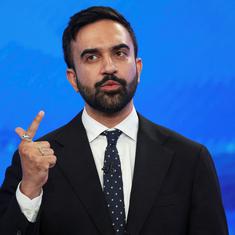Best known for his self-abnegating silence, Manmohan Singh, for once in his decade long prime ministerial tenure, lost no time in defending himself.
In October 2013, shock waves radiated from the power corridors of New Delhi to the stock markets in Mumbai as news broke that the Central Bureau of Investigation had filed a first information report against Kumar Manglam Birla, the chairman of the Aditya Birla group of companies. The case pertained to the allocation of Talabira II coal block in Odisha to the group’s aluminum company, Hindalco Industries. Despite being reserved for public sector companies, a part of the coal block had been allocated by the coal ministry to Hindalco. The CBI contended that this amounted to a “criminal conspiracy” on part of Birla and former coal secretary PC Parakh.
Implicated in the case, Parakh mounted a public attack on the prime minister, who headed the coal ministry between 2006-’09, the years when the maximum allocations had been made. “As the Coal Secretary, I made a recommendation and the Prime Minister, who was also holding coal portfolio, agreed with it,” Parakh told a reporter of The Hindu. “He could have overruled my recommendation. If the CBI says I am wrong, the Prime Minister is also wrong.”
The next day, the paper published a detailed story which pieced together, on the basis of government documents, the events leading up to the allocation of Talabira II. It found that the screening committee headed by Parakh had initially rejected the company’s bid for the coal block, but “the committee’s recommendations were changed in the case of the Aditya Birla Group at the behest of Prime Minister Manmohan Singh who was also Coal Minister at the time”.
Unusual swiftness
Showing uncharacteristic alacrity, by evening, the prime minister’s office issued a press release that sought to rebut the story. Explaining the rationale behind the allocation, it said that the PMO had received a letter by the state government, strongly backing Hindalco, and in the light of the letter, it had asked the coal ministry to re-examine the case. It maintained that the final decision was “entirely appropriate” and was based “on the merits of the case placed” before the prime minister.
The swift clarification came as timely relief for the embattled prime minister, nipping in the bud any further public controversy over his role in the coal scam. It helped that the case was related to a blue chip company which was seen as a deserving candidate for coal reserves. The business press rallied behind Birla, vociferously denouncing attempts to sully the name of a leading industrialist. Crony capitalism, it appeared, was a charge that could extend only to decisions made in favour of small, unknown firms. Simultaneously, with one of their own implicated in the case, bureaucratic lobbies raised alarm over the possible crippling effect of investigations which attributed “malafide” intent to decisions takes in the “best interest” of the country.
For a while, it seemed that the Hindalco case would die out. The CBI even filed a closure report in August this year, stating that it had not found any evidence to substantiate the allegations made in the FIR. But the special court hearing the case was not satisfied. Last month, special judge Bharat Parashar, who is hearing the coal cases, called for all the papers relating to the Hindalco case. The judge asked the CBI why the agency had failed to question the coal minister. On Tuesday, he ordered the CBI to “examine” Manmohan Singh and record his statement in the case. The Indian Express reported that the judge observed that the letters written by Birla to Singh and the reminders sent by the PMO as well as repeated telephonic requests seeking an early response from the coal ministry raise “grave shadows of suspicion.”
Wider implications
With this, Manmohan Singh stands compelled to speak up once again in his defense, and this time rather ignominiously in the ambit of a criminal investigation. But the implications of the case are wider. Singh had managed to distance himself from the allocations by maintaining that the recommendations were made by a screening committee made up of bureaucrats. But the Hindalco case shows that as a minister, not only did he intervene, he even overrode the committee’s decisions. Last year, a CBI official, speaking on the condition of anonymity with the Economic Times, said that “the agency has come across more cases where the PMO influenced allocations.”
No fresh cases were subsequently filed by the agency, but Sudeip Shrivastava, a lawyer and petitioner in the Supreme Court, said this could well have to do with the way the agency scuttled the investigations, rushing to file closure reports that are now being reopened by the special court. Earlier this year, Shrivastava and other public interest petitioners had wrested a major victory in the Supreme Court when they managed to successfully challenge the coal block allocations. Cancelling all the allocations, the apex court said that the screening committee’s decisions were not transparent. “The approach had been ad-hoc and casual,” it said. “There was no fair and transparent procedure, all resulting in unfair distribution of the national wealth. Common good and public interest have, thus, suffered heavily.”
Despite such strong words, the court had stopped short of pinning responsibility, leaving it to the special court hearing the criminal cases filed by the CBI to ascertain individual liabilities. With the special court forcing the CBI to question Manmohan Singh, the question is, would the liability now extend all the way to the top?
Silence on the coal scam is no longer an option for Manmohan Singh
How far up the ladder does responsibility for the irregular allocations go?










